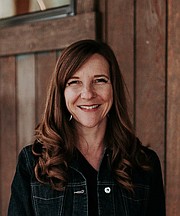Former, current commissioners respectfully disagree
MADISON HARDY | Hagadone News Network | UPDATED 4 years, 5 months AGO
Since the last ballot measure to alter county government structure was before Kootenai County voters in 2012, then-commissioner Dan Green and current commissioner Leslie Duncan said a lot has changed.
Besides the influence of newly elected officials, a considerable difference noted by the speakers during an Optional Forms of Government Study Commission interview Wednesday night is how qualified personnel and streamlined policies have improved efficiency.
"I've had staff, elected officials, and other county employees say the board I am in now has moved the fastest than most other boards have. But, we also have additional staff," Duncan said. "That saves me an incredible amount of time to have these resources in my hand quickly. Then I can work on more things like policy and procedure."
Evaluating the efficiency and effectiveness of county operations is the primary task of the study commission. As the third installment of this investigation — first discussed in 1996, then in 2012 — the group has held a series of public interviews exploring the reasoning behind past recommendations. A goal: See if the same concerns are evident today.
Wednesday's discussion touched on similar concepts articulated by interviewees over the last month, including:
• The quality of elected officials
• The need to adapt to growth
• Accountability by the electorate
• Improved administration functions
Green, a Kootenai County commissioner from 2010 to 2016, was a supporter of the 2012 recommendation to modify the county government structure. Like the first study resolution in 1996, the 2012 ballot measure called for a five-person, part-time board of commissioners and the hiring of a county manager to oversee routine administrative functions. The recommendation also proposed making the coroner, treasurer, assessor and clerk hired rather than elected positions.
"It was too big a bite," Green said Wednesday, reflecting on the failed measure. "I think the change was too much."
The goal at the time, Green said, was to improve efficiency, save tax dollars, be more responsive to the public and encourage higher quality elected officials.
"This system … isn't broken, but it can be better," he said.
During his tenure, Green said commissioners spent too much time on administrative functions instead of reviewing and developing policies that would offer long-term improvements in county government.
"County government did not move forward, did not exist or did not perform if we did not sign on these daily documents or attend these hearings," Green said. "The number of meetings (commissioners) sit in regularly to facilitate the operations of county government is staggering. That was what we hoped to reduce."
Reforming policy for efficiency is something Duncan said she has undertaken over the last 18 months.
"I like to make things more efficient, streamline, and not so burdensome," she said. "I've taken on some of the processes we do and try to make them a little better, so we're not spending so much time on things that are maybe not as important as some other things that are."
At first, she said, being a commissioner was more than just a full-time job, encompassing probably 60 hours of her week as she learned the inner workings of Kootenai County. However, as she grew more familiar with her role, she said, the workload became manageable and allowed her to embark on other projects.
Part of time management, Duncan said, was delegating responsibilities where legally allowed. That redistribution of assignments, she said, began under the administration of Green, Jai Nelson and Todd Tondee.
"I have a communications manager, a business analyst and an auditor's office," Duncan said. "I have department heads that are experts in their field, and I have a great administrative supervisor. I already have everything I need right now to make good solid decisions."
Echoing the sentiments of last week's speaker, Kootenai County Treasurer Steve Matheson, Duncan said it's the quality of elected officials and staff that will determine efficiency.
"I want somebody in this position that may not have government or business experience but is somebody who can learn quickly, work hard, have the critical thinking skills to make good decisions and most of all have integrity," she said. "It does have more to do with the people in the office than it does the form the government takes."
Green commended Duncan for her efforts and the visible improvements in county operations. Still, he said he sees more avenues where county efficiencies could grow.
"I think we can be more efficient, and I know Leslie wants to be more efficient too," Green said. "We just take two different paths."
ARTICLES BY MADISON HARDY

CDA Tribe challenges redistricting
Says 'communities of interest' not served in new map
Coeur d'Alene and Shoshone-Bannock tribal leaders file suit against legislative boundaries

CDA Tribe challenges redistricting
Says 'communities of interest' not served in new map
Coeur d'Alene and Shoshone-Bannock tribal leaders file suit against legislative boundaries

CDA Tribe challenges redistricting
Says 'communities of interest' not served in new map
Coeur d'Alene and Shoshone-Bannock tribal leaders file suit against legislative boundaries



